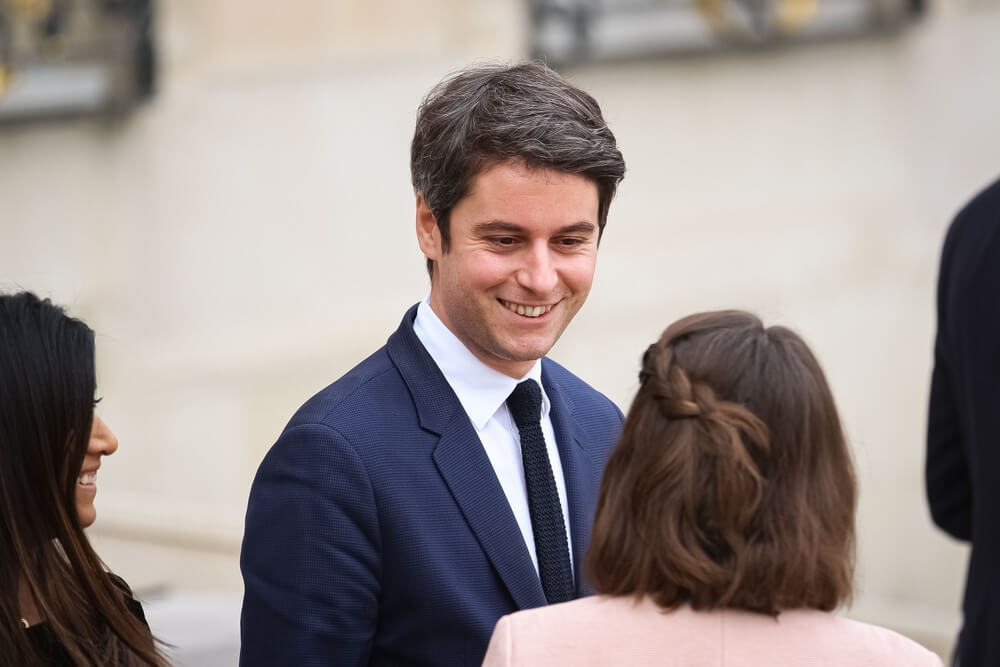France will return to work tomorrow, full of impressions from the Olympic Games it has hosted. The spectacle of the event, from the ceremonial opening to the sporting excitement that has followed over the past two weeks, will distinguish political France on Monday from the one before the Paris Olympics.
For years, President Emmanuel Macron has regarded the organisation of the Paris Olympics as his ultimate political engagement. He personally lobbied the International Olympic Committee for Paris to organise the 2024 Games just a few weeks after his second presidential election in 2017.
In devising a strategy to tackle the biggest risk of his policy, President Macron has put the Olympic Games at the top of the list.
The European Parliament elections in June were projected to be the biggest political challenge for Macron's policies this year, and he has risen to the challenge by taking several risky steps.
Firstly, he changed the government last January and placed the popular Gabriel Attal at its head to cushion the rise of Marine Le Pen's far-right National Rally.
This manoeuvre only had a partial effect, and the extreme right became the strongest force in the European elections in June. Macron's call for early parliamentary elections, which immediately followed, took France and the world by surprise, but the risk paid off.
Return on investment
The far right no longer has a chance to form a government, although they have left President Macron with the still-difficult task of forming a government with a growing left-wing bloc.
But in solving this new, difficult equation, the Olympic Games in Paris are an important factor in which Macron has invested politically for years and from which he now expects a return.
Monday will be the first day on which French politics will once again focus on the issue of forming a government
Monday will be the first day on which French politics will once again focus on the issue of forming a government. Shortly before the start of the Olympic Games, Macron announced that government talks and the appointment of a new prime minister would wait until mid-August and the end of the Games.
That was also his big stake, as he appointed Prime Minister Attal to run the affairs of state as the government's caretaker while the Games in Paris last.
The victory of soft power
France faced a number of potential problems in the run-up to the Olympic Games, some of which threatened to completely destroy the country's image and its ability to host the world's biggest sporting event.
The security risk from potential diversions and even terrorist attacks was large and real. Tensions in the Middle East have spilled over and threatened Israeli athletes, and cyber sabotage by Russian state-sponsored hackers has been equally threatening.
The sabotage of the railway system in the early days of the Olympic Games startled the organisers, but it was also the last major security trauma they had to deal with.
After the closing ceremony on Sunday evening, Paris and France will have won an important victory for their soft power
The largest ever deployment of over 40,000 security personnel ensured the games ran smoothly.
After the closing ceremony on Sunday evening, Paris and France will have won an important victory for their soft power and an image boost around the world.
For President Macron, it is even more important that the positive sentiments towards the just concluded Olympics reflect on his internal position as of Monday.
The poll ratings of Macron and his Prime Minister, Gabriel Attal, had already increased by a few per cent in the first few days of the Olympics. There is no doubt that this trend will be confirmed after the Games.
Post-Olympic optimism
However, the positive trends alone will probably not be enough for Macron to avoid cohabitation with the left-wing bloc, which surprisingly achieved the best result in the early elections on June 30 and July 7.
But it will be a far more comfortable cohabitation than the one that threatened after the European elections in June with Marine Le Pen’s far-right.
 The Olympic Games leave the French with positive emotions and the belief that everything went well thanks to the dedicated work of the previous administration, including outgoing Prime Minister Gabriel Attal
The Olympic Games leave the French with positive emotions and the belief that everything went well thanks to the dedicated work of the previous administration, including outgoing Prime Minister Gabriel Attal
At the end of July, after lengthy internal discussions, the left-wing coalition of the New Popular Front nominated Lucie Castets (37), a previously little-known politician and head of finance for the city of Paris, as its candidate for prime minister.
In light of their unexpected victory in the parliamentary elections, the left should be confident that the president will appoint their candidate as head of government.
But in the meantime, the Olympic Games took place, which will not only leave the French with positive emotions but also the belief that everything went well thanks to the dedicated work and good organisation of the previous administration, including outgoing Prime Minister Gabriel Attal, Macron's protégé.
This is why Macron and his bloc are embarking on a process of forming a government with much more political credit than before the Paris Games, and this credit far exceeds their election result.